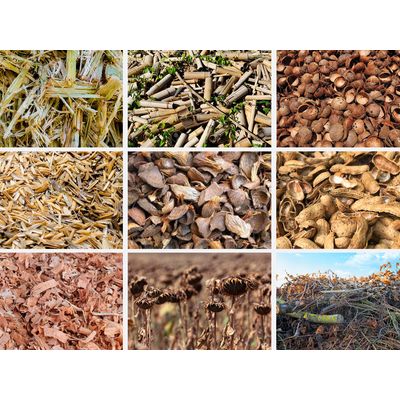

- Home
- Companies
- Beston Group Co., Ltd.
- Articles
- Why Biochar Production Instead of ...

Why Biochar Production Instead of Composting Biomass
In the pursuit of sustainable biomass management, two distinctive approaches have garnered attention: biochar production and composting. Both methods seek to convert organic matter into valuable resources, but they differ significantly in their mechanisms and outcomes. This article delves into the world of biochar production and composting, exploring the advantages of choosing biochar production over composting for transforming biomass and enriching soil health.
Biochar Production: A Transformational Process
Definition and Principles of Biochar Production
Biochar production involves the thermal decomposition of biomass, such as agricultural waste, in a low-oxygen environment. This process, known as pyrolysis, transforms the biomass into a stable carbon-rich material called biochar.
Pyrolysis: The Key Mechanism
During pyrolysis, the biomass undergoes thermochemical reactions, leading to the breakdown of complex organic compounds into simpler carbon structures. The absence of oxygen prevents combustion and enables the preservation of carbon in the resulting biochar.
Unique Properties of Biochar
Biochar possesses unique properties, such as high surface area, porosity, and cation exchange capacity. These properties contribute to its role as a valuable soil amendment and carbon sequestration agent.
Composting Biomass: An Age-Old Practice
Definition and Principles of Composting
Composting is a natural biological process that involves the decomposition of organic materials into a nutrient-rich soil conditioner. The process relies on the activity of microorganisms, fungi, and earthworms.
The Composting Process
In composting, organic materials are piled together and left to decompose over time. As microorganisms break down the biomass, heat is generated, leading to the formation of compost.
Benefits and Limitations of Composting
Composting offers several benefits, such as nutrient recycling, waste reduction, and improved soil structure. However, it has limitations in its ability to retain carbon and prevent greenhouse gas emissions.
Advantages of Choosing Biochar Production
Carbon Sequestration and Climate Change Mitigation
Biochar production is a significant contributor to carbon sequestration. The stable carbon structure of biochar allows it to lock carbon for an extended period, mitigating climate change impacts.
Nutrient Retention and Enhanced Soil Fertility
Biochar's unique properties enable it to retain nutrients and moisture in the soil, promoting better plant growth and reducing nutrient leaching.
Reduced Greenhouse Gas Emissions
Compared to composting, biochar production equipment generates fewer greenhouse gas emissions, as it prevents the release of carbon dioxide during decomposition.
Comparing Biochar and Composting in Sustainable Biomass Management
Environmental Impact and Footprint
Biochar production and composting have different environmental footprints. While composting contributes to nutrient recycling, it may release greenhouse gases during decomposition. In contrast, biochar production sequesters carbon but requires additional energy for pyrolysis.
Effectiveness in Soil Improvement
Both biochar and composting can enhance soil fertility and structure. However, biochar's long-lasting effects and nutrient retention capabilities make it particularly advantageous in certain soil types and climates.
Application in Different Scales and Contexts
Composting is often practical at a smaller scale, such as household composting. On the other hand, biochar production can be scalable, making it suitable for larger agricultural and waste management contexts.
Integrating Biochar Production into Biomass Management Practices
Synergistic Approaches for Sustainable Agriculture
Combining biochar production with composting and other sustainable practices can create synergistic effects, optimizing soil health and crop productivity.
Biochar in Waste Management and Circular Economy
Biochar production provides a pathway for converting biomass waste, including agricultural residues, into a valuable resource. It aligns with circular economy principles, closing the loop on organic waste management.
Future Prospects and Research Directions
As interest in biochar production grows, ongoing research focuses on optimizing pyrolysis processes, exploring different feedstocks, and understanding the long-term effects of biochar application on soil and ecosystem health.
In conclusion, both biochar production and composting offer valuable approaches to sustainable biomass management. However, the unique properties of biochar, such as carbon sequestration and nutrient retention, make it an increasingly attractive option for enriching soil health and mitigating climate change. By exploring the advantages of biochar production over composting, we can make informed decisions in selecting the most suitable approach for transforming biomass and fostering a greener, more sustainable future.


